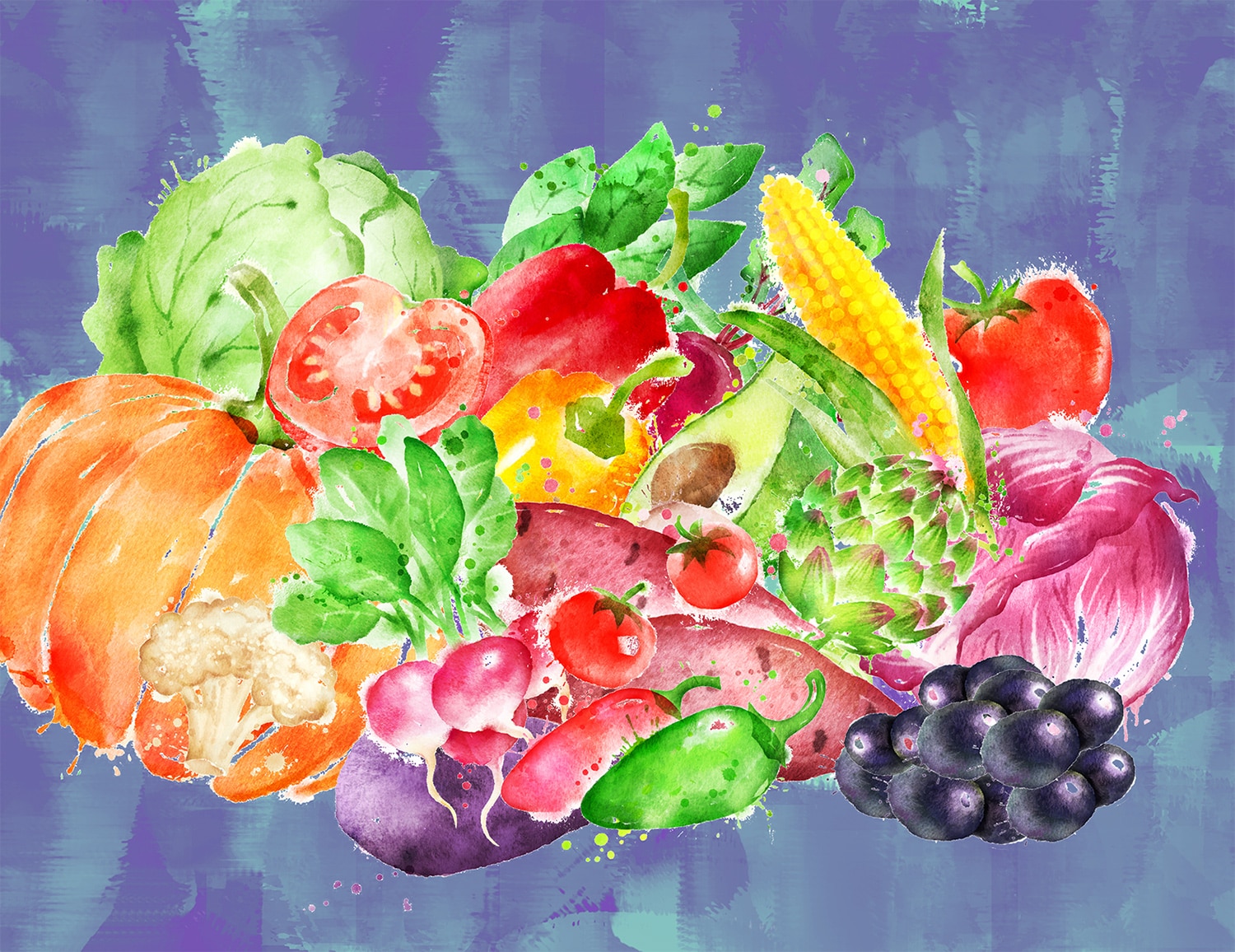TOO MANY OF US REMAIN UNAWARE of the health benefits we can reap from fruits and vegetables. According to the 2019 American Institute for Cancer Research (AICR) Cancer Risk Awareness Survey, only 42% of Americans understand that a diet high in fruits and vegetables lowers cancer risk. Between 2001 and 2019, that awareness peaked at 52% in 2009, but has remained below 50% ever since.
Fruits and vegetables can lower cancer risk thanks to biological compounds called phytochemicals, which are also present in whole grains, beans, nuts and seeds. Phytochemicals are responsible for the characteristic colors, tastes and scents of these foods.
While the research suggests decreased cancer risk, the specifics of how phytochemicals protect against cancer remain unclear, says Nigel Brockton, a molecular epidemiologist who is the vice president of research for the AICR in Arlington, Virginia.
Brockton notes that laboratory tests have demonstrated how phytochemicals act as antioxidants to reduce cellular and genomic damage, promote anti-inflammatory activity, and both inhibit cell proliferation and induce programmed cell death. “But [understanding] how these mechanisms operate and potentially interact in a living organism remains a significant research challenge,” he says.
If you’re looking to increase your intake of phytochemicals, you may be tempted to use nutritional supplements. Brockton recommends getting them from whole foods where possible. “People are bombarded with health messaging that promises the prospect of a highly enriched supplement that can take the place of a balanced diet,” he explains. “But the evidence doesn’t support supplementation as an effective approach for cancer prevention.”
Instead, he suggests making small changes to your diet that you’ll be able to stick to. Start by introducing colorful, plant-based, nonstarchy foods, and then ramp up the frequency and variety of these items over time.
Cancer Today magazine is free to cancer patients, survivors and caregivers who live in the U.S. Subscribe here to receive four issues per year.





